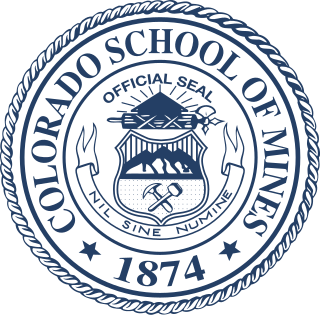
Colorado School of Mines (Mines) is a public research university in Golden,Colorado founded in 1874. The school offers both undergraduate and graduate degrees in engineering,science,and mathematics,with a focus on energy and the environment. While Mines does offer undergraduate minor programs in the humanities,arts,and social sciences,it only offers degree programs in STEM fields,with the exception of economics. In the Fall 2023 semester,the school had 7,101 students enrolled,including 5,443 undergraduate and 1,658 graduate students. The school has been coeducational since its founding,but enrollment remains predominantly male. It is classified among "R1:Doctoral Universities –Very high research activity".

The National Science Board (NSB) of the United States establishes the policies of the National Science Foundation (NSF) within the framework of applicable national policies set forth by the president and the Congress. The NSB also serves as an independent policy advisory body to the president and Congress on science and engineering research and education issues. The board has a statutory obligation to "...render to the President and to the Congress reports on specific,individual policy matters related to science and engineering and education in science engineering,as Congress or the President determines the need for such reports,". All board members are presidential appointees. NSF's director serves as an ex officio 25th member and is appointed by the president and confirmed by the US Senate.
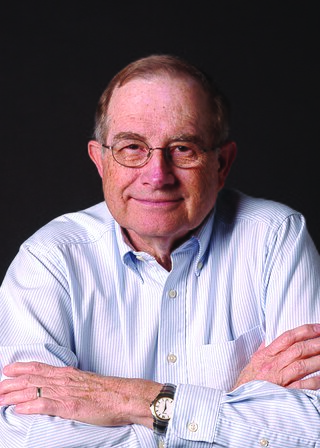
Cornelius Francis "Neal" Lane,is an American physicist and senior fellow in science and technology policy at Rice University's Baker Institute for Public Policy and Malcolm Gillis University Professor Emeritus of Physics and Astronomy Emeritus at Rice University in Houston,Texas.

Science,technology,engineering,and mathematics (STEM) is an umbrella term used to group together the distinct but related technical disciplines of science,technology,engineering,and mathematics. The term is typically used in the context of education policy or curriculum choices in schools. It has implications for workforce development,national security concerns,and immigration policy,with regard to admitting foreign students and tech workers.

Pramod P. Khargonekar is the Vice Chancellor for Research and Distinguished Professor of Electrical Engineering and Computer Science at the University of California,Irvine. An expert in control systems engineering,Dr. Khargonekar has served in a variety of administrative roles in academia and federal funding agencies. Most recently,he served as assistant director for Engineering at the National Science Foundation (2013–2016),and as deputy director for Technology at the Advanced Research Projects Agency –Energy. From 2001 through 2009 he was the Dean of the College of Engineering at the University of Florida.
Angela K. Wilson is an American scientist and former (2022) President of the American Chemical Society. She currently serves as the John A. Hannah Distinguished Professor of Chemistry,associate dean for strategic initiatives in the College of Natural Sciences,and director of the MSU Center for Quantum Computing,Science,and Engineering (MSU-Q) at Michigan State University.

Subra Suresh is an Indian-born American engineer,materials scientist,and academic leader. He is currently Professor at Large at Brown University and Vannevar Bush Professor of Engineering Emeritus at the Massachusetts Institute of Technology (MIT). He was Dean of the School of Engineering at MIT from 2007 to 2010 before being appointed as Director of the National Science Foundation (NSF) by Barack Obama,where he served from 2010 to 2013. He was the president of Carnegie Mellon University (CMU) from 2013 to 2017. Between 2018 and 2022,he was the fourth President of Singapore's Nanyang Technological University (NTU),where he was also the inaugural Distinguished University Professor.

The DO-IT Center is based at the University of Washington (UW) in Seattle,Washington. Founded in 1992,DO-IT’s mission is to increase the successful participation of people with disabilities in postsecondary education and careers,in STEM fields and careers,and in computing fields and careers throughout the U.S. It directs the national AccessSTEM program,and co-directs the national AccessComputing Alliance focused on engaging people with disabilities in computing fields.
The Nelson Diversity Surveys (NDS) are a collection of data sets that quantify the representation of women and minorities among professors,by science and engineering discipline,at research universities. They consist of four data sets compiled by Donna Nelson,Professor of Chemistry at the University of Oklahoma during fiscal years (FY) 2002,2005,2007,and 2012 through the Diversity in Science Association. These surveys were each complete populations,rather than samples. Consequently,the Surveys quantified characteristics of the faculty which had never been revealed previously,drawing great attention from women and minorities. Furthermore,the Surveys initially came at a time when these underrepresented groups were becoming concerned and vocal about perceived inequities in academia. At the time the surveys were initiated,the MIT Study of 1999,expressing the concerns of women scientists,had just been issued,and underrepresented minority (URM) science faculty noticed URM students increase among PhD recipients without a corresponding increase among recently hired professors. Data sets like the NDS,along with similar research available through the NSF,allowed URM faculty to track the progress of diversity efforts in the STEM fields. As noted by the Women's Institute for Policy Research,progress has been slow for under-represented women in the sciences.

Sethuraman Panchanathan is an Indian–American computer scientist and academic administrator,and,since June 2020,the 15th Director of National Science Foundation.

Salvatore Domenic Morgera is an American and Canadian engineer,scientist,inventor,and academic. Morgera is a Tau Beta Pi Eminent Engineer,Life Fellow of the Institute of Electrical and Electronics Engineers (IEEE),Fellow of the Institution of Engineering and Technology(IET),Fellow of the American Association for the Advancement of Science (AAAS),Fellow of the Asia-Pacific Artificial Intelligence Association (AAIA),Professor of Electrical Engineering,Professor of Biomedical Engineering,and Director of the C4ISR Defense &Intelligence and Bioengineering Laboratories at the University of South Florida and Professor Emeritus at McGill University,Concordia University,and Florida Atlantic University.
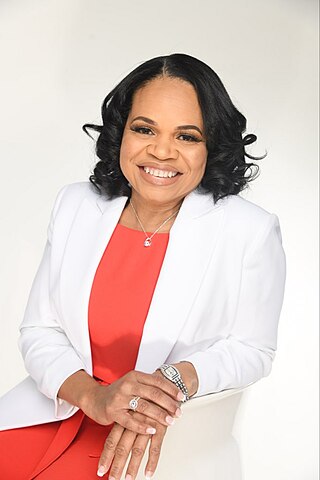
Ashanti Johnson is an American geochemist and chemical oceanographer. She is the first African American to earn a doctoral degree in oceanography from Texas A&M University.
The Presidential Award for Excellence in Science,Mathematics and Engineering Mentoring (PAESMEM) is a Presidential award established by the United States White House in 1995. The program is administered by the National Science Foundation (NSF) on behalf of the White House Office of Science and Technology Policy (OSTP) to reward outstanding mentoring by individuals and organizations. PAESMEM is the highest national mentoring award bestowed by the White House.

Monica Farmer Cox is a professor of engineering education at Ohio State University. Cox was the first African-American woman to earn tenure in engineering at Purdue University. She won the 2008 Presidential Early Career Award for Scientists and Engineers.
Autar Kaw is a professor of mechanical engineering at the University of South Florida. In 2012,he won the U.S Professor of the Year award from the Carnegie Foundation for Advancement of Teaching and the Council for Advancement and Support of Education. Kaw's main scholarly interests are in education research methods,open courseware development,flipped and adaptive learning,and the state and future of higher education.

Talitha Washington is an American mathematician and academic who specializes in applied mathematics and STEM education policy. She was recognized by Mathematically Gifted &Black as a Black History Month 2018 Honoree. Washington became the 26th president of the Association for Women in Mathematics in 2023.
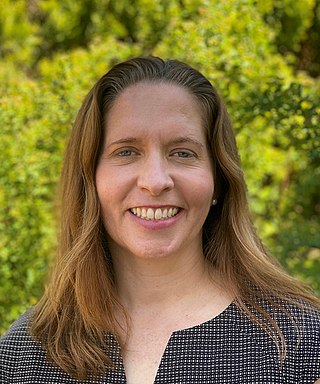
Jennie C. Stephens is an academic researcher,professor,author,and social justice advocate. She is Professor of Sustainability Science &Policy at Northeastern University in Boston,Massachusetts. She is also affiliated with the Women's,Gender and Sexuality Studies Program,the department of Civil &Environmental Engineering and the department of Cultures,Societies &Global Studies.
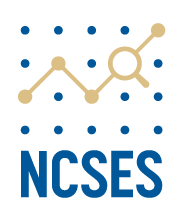
The National Center for Science and Engineering Statistics (NCSES) is one of the thirteen principal statistical agencies of the United States and is tasked with providing objective data on the status of the science and engineering enterprise in the U.S. and other countries. NCSES sponsors or co-sponsors data collection on 15 surveys and produces two key publications:Science and Engineering Indicators,and Women,Minorities,and Persons with Disabilities in Science and Engineering. Though policy-neutral,the data and reports produced by NCSES are used by policymakers when making policy decisions regarding STEM education and research funding in the U.S.
The Winifred Burks-Houck Professional Leadership Awards are rewarded annually by the National Organization for the Professional Advancement of Black Chemists and Chemical Engineers (NOBCChE) to recognize the contributions of African American Women in scientific and technological fields of study and work. The award is named for Winifred Burks-Houck,environmental chemist and the first female president of NOBCChE.














